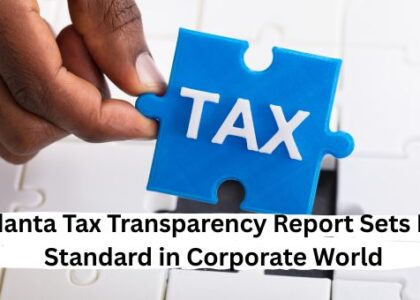In a significant relief for Vedanta Limited, the National Company Law Appellate Tribunal (NCLAT) has put a stay order on NCLT’s earlier order that rejected the company’s demerger plan involving its power business. This recent announcement not only gives a ray of hope to Vedanta but has also strengthened its position as a responsible corporate entity that upholds stakeholder interests.
Continue reading this blog to know more about Vedanta NCLT and how the recent stay can prove beneficial for Vedanta in continuing its demerger.
The Background
Earlier this year, the Mumbai Bench of the National Company Law Tribunal (NCLT) had rejected Vedanta’s proposed demerger of its power business into Talwandi Sabo Power Ltd (TSPL), raising objections from SEPCO Electric Power Construction Corp., a Chinese creditor with an alleged INR 1,251 crore claim. The rejection related to Vedanta TSPL caused delays and halts Vedanta’s broader plan to restructure into five distinct verticals focused on core sectors like aluminium, oil & gas, power, base metals, and ferrous materials.
However, this setback wasn’t the end; it was just one of the challenging phases in Vedanta’s growth and journey.
The NCLAT Intervention: What Changed?
On May 27, 2025, the NCLAT issued a stay on the Vedanta NCLT rejection order. The calculating move brought a ray of hope to the decision of Vedanta. But there is an important condition to this hold: Talwandi Sabo Power must provide a bank guarantee worth INR 1,245 crore, indicating that the interests of SEPCO are not compromised.
The full hearing on this matter is scheduled for August 4, 2025. Vedanta awaits the final Vedanta NCLT approval, and once granted, it will be a landmark step for the company.
Why is This Stay Order Crucial for Vedanta?
1. Focus on Timely Restructuring
Vedanta aims to complete the demerger process by September 30, 2025. The NCLAT ruling keeps that target alive and helps prevent business disruptions. Post Vedanta Demerger, each vertical is expected to function as an independent listed entity post-demerger, unlocking greater value for shareholders.
2. Reinforces Legal and Ethical Maturity
Instead of sidestepping the creditor’s concern, Vedanta offered a bank guarantee, reflecting both legal maturity and ethical governance. This sets an example for corporate India that legal challenges can be addressed head-on without compromising progress.
3. Boosts Investor Sentiment
Post the announcement made by the NCLAT, Vedanta shares saw a significant surge, reflecting investors’ confidence in the Vedanta demerger and financial strategy.
4. Adherents with International Practices
Vedanta’s strategic demerger follows the global best practice of creating focused business verticals that are easier to manage, more agile, and better positioned for sectoral growth. Adhering to international rules and regulations shows Vedanta’s visionary approach.
Corporate Restructuring
Though the legal proceedings are still ongoing, the NCLAT’s decision has brought much relief for Vedanta. The company’s next steps, including completing the demerger, listing separate entities, and boosting transparency, are all bold and structured steps towards India’s industrial growth story.
The company has already laid out clear business divisions:
- Vedanta Aluminium
- Vedanta Oil & Gas
- Vedanta Power
- Vedanta Iron and Steel
- Vedanta Limited
This move supports focused capital allocation, greater agility, and better sector-specific strategies across geographies.
Conclusion
So, all those looking for Vedanta NCLT news can have some relief, as the one that looked like a challenge has turned into an opportunity. This stay order clearly defines that Vedanta has not only addressed the NCLT’s concerns with speed and seriousness but has also demonstrated its strategic vision for long-term value creation.
FAQs
What is the Vedanta demerger plan about?
Vedanta Ltd. has proposed a strategic demerger according to which the company will demerge into five independently listed companies —
- Vedanta Aluminium
- Vedanta Limited
- Vedanta Oil & Gas
- Vedanta Power
- Vedanta Iron and Steel
What is NCLAT’s role in this case?
The National Company Law Appellate Tribunal (NCLAT) is an appellate body above the NCLT. In the case of Vedanta, the Mumbai NCLT rejected the demerger of its power business (into Talwandi Sabo Power Ltd) due to creditor concerns. However, Vedanta appealed the decision to NCLAT and the rule was given in favour of Vedanta. The NCLAT allowed the demerger to move forward conditionally while safeguarding creditor interests.
Why is this NCLAT stay important for Vedanta?
NCLAT plays an important role in Vedanta’s demerger process. Without it, the NCLT’s rejection might have delayed or derailed the entire demerger timeline, affecting business operations and market confidence. However, the recent stay will allow Vedanta to continue its restructuring as planned, demonstrating its credibility, preparedness, and commitment to legal due process.
How does this impact shareholders?
Vedanta demerger will prove beneficial for the shareholders as well as it will result in focused management, targeted investment, and independent listing of each business vertical. The investors can look forward to enhanced transparency, sector-specific performance metrics, and improved governance across the demerged entities.










